Seven American Soldiers Have Defected to North Korea Since the Korean War
Since the signing of the Korean Armistice Agreement, seven Americans have made the unprecedented decision to defect to North Korea. These men weren’t any ordinary Americans – they were servicemen who’d been trained to fight against the very nation they were defecting to. Their decision shocked many in the United States, and each made the choice for different reasons.
Larry Allen Abshier
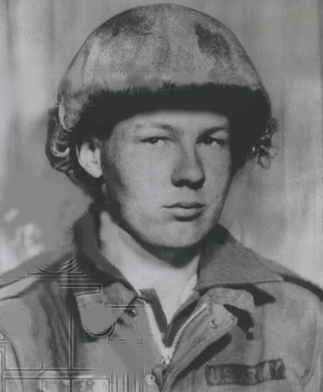
The first person to defect to North Korea was Pvt. Larry Allen Abshier, who served with the 1st Reconnaissance Squadron, 9th Cavalry Regiment, 1st Cavalry Division. In May 1962, Abshier left his post and snuck across the Korean Demilitarized Zone (DMZ) because, as fellow defector James Dresnok explained, he “was caught on it five or six times…They were going to court-martial him or kick him out of the Army.”
Abshier was alone there for three months. When the others arrived, they lived together for years in a one-room house. According to Charles Jenkins, Abshier was bullied relentlessly by Dresnok, as he was “a simple, sweet, good-hearted soul who was also more than a little dumb and easy to take advantage of.”
He and the other three were used in North Korean propaganda, starring in many different films as evil Americans. Their roles made them extremely popular. Whenever photos of them were released, it showed them as happy and successful. It’s difficult to know how true this was, especially considering Abshier died of a heart attack at only 40 years old.
James Dresnok
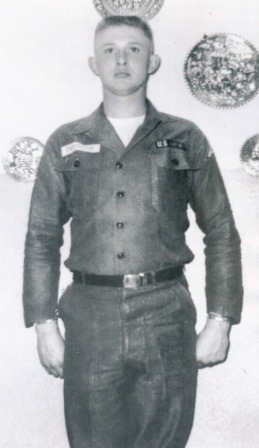
James Dresnok was the second American to defect to North Korea. He’d initially served with the US Army in West Germany, and wound up re-enlisting following his divorce. His next tour, in 1962, was in South Korea as a private first class with the 1st Cavalry Division.
While there, he forged his commanding officer’s signature to leave base, an action for which he was court-martialed. Instead of facing his punishment, he made a life-changing decision. In his own words, “I was fed up with my childhood, my marriage, my military life, everything. I was finished. There’s only one place to go. On August 15th, at noon in broad daylight when everybody was eating lunch, I hit the road. […] I crossed over, looking for my new life.”
Dresnok settled into life in North Korea, starring in propaganda films and encouraging other Americans to defect. Later in life, he taught English at the Pyongyang University of Foreign Studies. He married two different women and had many children who also fully embraced their lives in North Korea, with some even enlisting in the military.
He recounted his life in the 2006 documentary Crossing the Line, showing no regret for his actions. Dresnok’s sons released a statement, saying he died in November 2016, but that he remained loyal to Kim Jong Un. Certainly, as of 2006, he said, “I have never regretted coming to the Democratic People’s Republic of Korea.”
Jerry Wayne Parrish
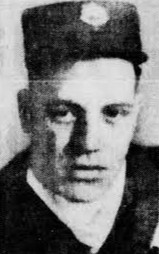
Three years after James Dresnok, Jerry Wayne Parrish became the third American to cross the DMZ, doing so while stationed in South Korea. Accounts claim that found atop his rifle was an unsigned note, which read, “Tell mother I love her. I’ll be back home someday. Tell my friends goodbye.” His mother, however, was absolutely convinced Parrish had been captured.
According to Charles Jenkins, Parrish kept his reason for defection close to his chest. What he did reveal, however, was that “if he ever went home, his father-in-law would kill him.” Dresnok knew a bit more, saying in Crossing the Line that Parrish’s stepfather thought he’d had an intimate relationship with his stepsister.
As with the other men, he was married while living in North Korea. He and his wife, a Lebanese woman named Siham Shraiteh, had three boys. Supposedly, they were all still living in North Korea as of 2006. Parrish, however, died on August 25, 1998. He’d been struggling for years with kidney problems, eventually succumbing to them.
Charles Robert Jenkins
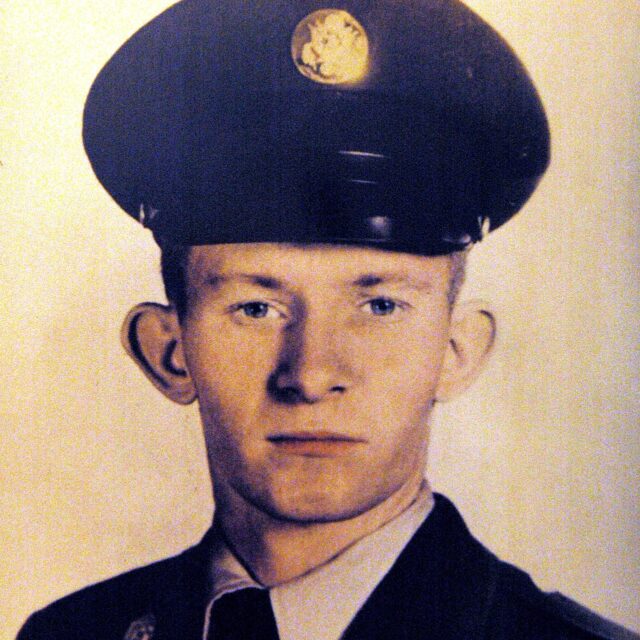
Charles Robert Jenkins is the best-known of the American defectors. He’d volunteered to serve in South Korea between 1960-61, before serving in West Germany. In 1964, he, again, volunteered for a deployment to South Korea, where he was stationed near the DMZ with the 8th Cavalry Regiment, 1st Cavalry Division.
Soon, rumors started that his unit was going to be sent to fight in the Vietnam War. That’s when he planned to cross the DMZ and claim asylum with the Soviets, who’d send him back to the US through a prisoner exchange. Instead, he was kept prisoner for just under 40 years and subjected to repeated torture.
He lived with the other American defectors until 1972, when they were made North Korean citizens and given their own houses. In 1980, he was “given” Hitomi Soga, a Japanese woman, as his wife, with whom he had two daughters. Eventually, Soga was allowed to return to Japan, where she worked out a plan to successfully free her husband and daughters.
On September 11, 2004, Jenkins turned himself in to American troops at Camp Zama, Japan, saying, “Sir, I’m Sergeant Jenkins, and I’m reporting.” As the longest missing US deserter to ever return for duty, Jenkins was court-martialed and sentenced to 30 days confinement. He was also dishonorably discharged and had his rank reduced to the lowest enlisted grade.
Roy Chung

Roy Chung, born Chung Ryeu-sup, was recorded as the fifth American to defect at the end of the Korean War. He was born and raised in South Korea, with his family immigrating to the US in 1973. It wasn’t long afterward that he enlisted in the US Army, supposedly to receive educational benefits.
Chung was sent overseas in the late 1970s, where he served in West Germany, near the city of Bayreuth. On June 5, 1979, he went missing. Initially, he was reported AWOL, and after not reappearing within 30 days was officially classified as a deserter.
No one knew what’d happened to Chung until a broadcast came out of North Korea two months later, proclaiming he’d defected. The country claimed he “could no longer endure the disgraceful life of national insult and maltreatment he had to lead in the U.S. imperialist aggressor Army.”
Chung’s case was unique, as he was the only defector who hadn’t crossed the DMZ. This strange defection led many to question whether he’d been abducted, as he went missing in a similar way to other kidnapping victims. Why he would have been targeted, however, is unclear, as he had no access to classified information.
Aside from the initial report from North Korea, little is known about Chung’s time there, other than he died of natural causes prior to 2004.
Joseph T. White
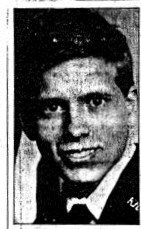
Joseph T. White was the sixth American defector to North Korea. Unlike the others, however, he actively betrayed his country to gain asylum. He was assigned to the 1st Battalion, 31st Infantry Regiment in South Korea, and on August 28, 1982, under the cover of darkness, shot the lock off a gate leading to the DMZ. Witnesses saw him march to the North Korean side carrying a bag of stolen American documents. White surrendered, turning over the bag.
Shortly after, United Nations Command (UNC) reached out to North Korea, requesting a meeting with White to see why he defected. The country declined, releasing a video statement instead. In it, he said he’d made his choice because of “corruptness, criminality, immorality, weakness, and hedonism,” in the US. He spoke out against American involvement in South Korea, concluding his speech by leading a chant for Kim Il Sung.
Nonetheless, his parents always believed he was a prisoner, not a defector.
As with the others, little is known about White’s life in North Korea. Jenkins never met him, although he did say there were plans to have him live with one of the other Americans, but these fell through when White had a seizure, leaving him paralyzed. His parents received a letter, in which he said he was happy and working as an English teacher. In November 1985, another note was sent, saying White had died by drowning in the Ch’ŏngch’ŏn River.
Travis King
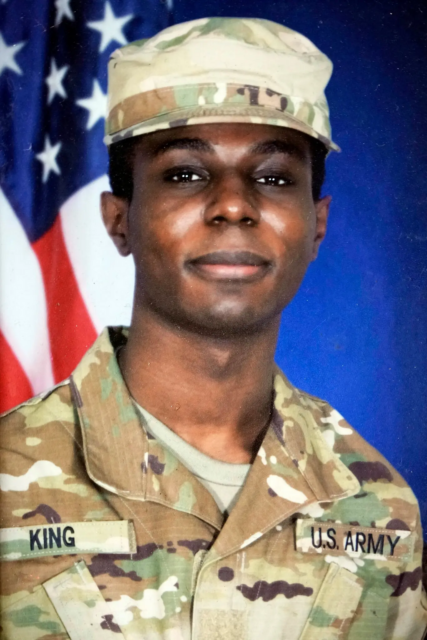
In 2023, Travis King became the first American to defect to North Korea since 1982. While stationed in South Korea, the US Army private crossed the DMZ, with it being reported that he’d initially been slated to return to the US to face military discipline action for an undisclosed reason. He’d managed to slip away from his escort at Incheon Airport, located just outside of Seoul.
Prior to his defection, King had served a two-month prison stint in South Korea on assault charges, with it being reported that he’d had several run-ins with the law since being stationed overseas.
More from us: The Purple Heart and Letter That Forever Haunted Harry Truman Following the Korean War
A few weeks after King crossed the DMZ, North Korea released a statement, claiming he’d defected because he was “disillusioned at the unequal American society.” More than a month later, on September 27, the country revealed that he’d been “expelled” from the country via the Friendship Bridge between North Korea and China. King was subsequently returned to the US.
The post Seven American Soldiers Have Defected to North Korea Since the Korean War appeared first on warhistoryonline.
Seven American Soldiers Have Defected to North Korea Since the Korean War
Philippines Truth
Post a Comment
0 Comments